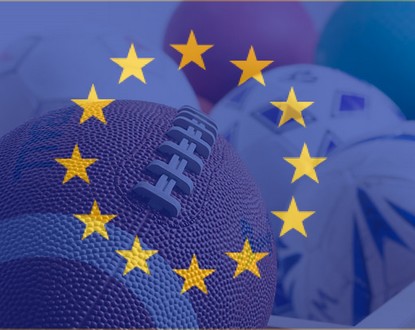After several delays, the Communication on Sport from the European Commission titled “The Lisbon Treaty – Developing the European Dimension in Sport” has finally been published. The Communication followed a public consultation with sports stakeholders that took place during the first half of 2010.
Its initial objective was to take into account the provisions of the Lisbon Treaty on sport, which laid the foundation for a new EU competence in the field of sport, and to clarify how the European Commission intends to address sports-related issues in the coming years. It complements the 2007 White Paper on Sport, whose action plan is to be implemented until 2012.
In connection with the framework defined in 2007, the European Commission’s proposals cover three main areas. Each chapter contains actions to be implemented by the European Commission and the Member States.
1) The Societal Role of Sport
This section covers the fight against doping, education, training and qualifications in the field of sport (dual career), the prevention of and fight against violence and intolerance, improving health through sport, and social inclusion in and through sport.
According to the Commission, the most significant issue seems to be the fight against doping. The European Commission proposes “the EU’s adherence to the Council of Europe’s anti-doping convention,” illustrating the EU’s ambition in this area.
The European Commission also wishes to develop guidelines on dual training and physical activity.
2) The Economic Dimension of Sport
The section dedicated to the economic dimension of sport includes themes of sustainable sports funding, the application of European Union state aid regulations to sport, regional development, and employability.
To ensure sustainable sports funding, the European Commission supports the centralized sale of broadcasting rights and emphasizes intellectual property rights in the field of sport. Sports organizations have already expressed their satisfaction in this regard.
It is worth noting that the Communication unfortunately contains no reference to a European funding program for sport despite announcements made in 2010. Regarding the inclusion of sport in European funding programs, the European Commission recommends “fully exploiting the opportunities offered by Structural Funds for aspects related to sport,” thus marking a notable advancement.
3) The Organization of Sport
The chapter on the organization of sport includes the promotion of good governance in sport, the specificity of sport, free movement and nationality of athletes, the integrity of sports competitions, and European social dialogue in the sport sector.
On the issue of freedom of movement, the European Commission intends to provide guidelines “on how to reconcile treaty provisions regarding nationality with the organization of individual sports competitions on a national basis.”
A working document is annexed to the Communication for this purpose.


